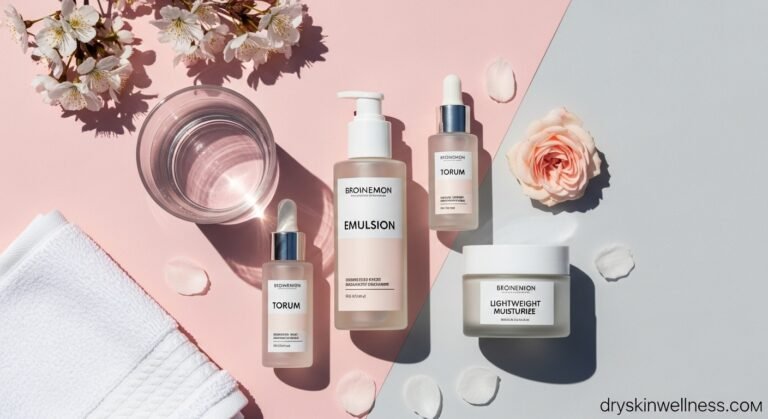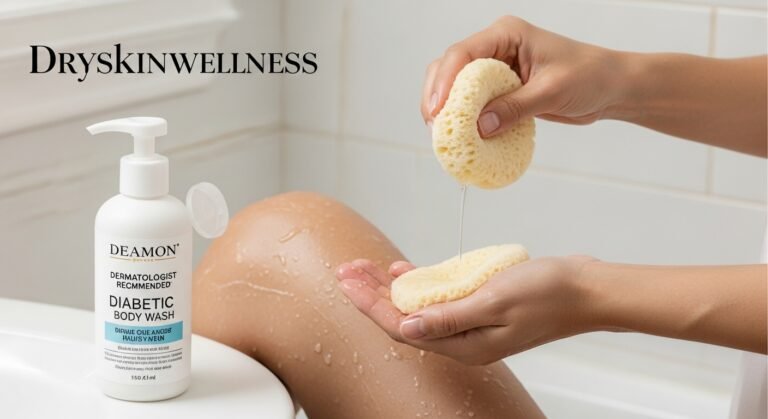Why Does Water Dry Out Your Skin?
Introduction to Skin Hydration
The Role of Water in Skin Health
Why Does Water Dry Out Your Skin? Water is essential for life, and your skin thrives on hydration. It helps maintain elasticity, smooth texture, and a healthy glow. However, while water is beneficial internally, its external interaction with the skin can be tricky.
Common Misconceptions About Water and Skin
Many assume that splashing water on their face or spending hours soaking in a bath hydrates the skin. Ironically, water often has the opposite effect when applied directly to the skin’s surface.
The Science of Water and Skin Dryness
How Water Interacts with the Skin Barrier
Your skin has a natural lipid barrier that locks in moisture and protects against external elements. Prolonged exposure to water can strip these essential oils, leaving your skin dry and prone to irritation.
The Impact of Hard Water on Skin
Hard water contains minerals like calcium and magnesium that can disrupt the skin barrier. These minerals can bind with the natural oils on your skin, making it feel rough and flaky.
The Role of Hot Showers in Drying Skin
Hot showers may feel luxurious, but they exacerbate dryness. The heat opens pores and strips natural oils, leaving your skin vulnerable and parched.
Factors That Exacerbate Skin Dryness
Environmental Factors
Cold, dry air during winter months and excessive exposure to air conditioning or heaters can suck moisture from your skin, intensifying dryness.
Overwashing and Overexposure to Water
Frequent handwashing, face washing, or long baths can remove the natural oils needed to keep your skin hydrated.
Role of Soap and Detergents
Harsh soaps and detergents can further strip the skin of its protective layer, causing irritation and dryness.
Understanding the Skin Barrier
What Is the Skin Barrier?
The skin barrier, or stratum corneum, is a thin outer layer responsible for maintaining moisture and protecting against irritants and allergens.
How Water Can Disrupt the Skin Barrier
When exposed to water repeatedly, the barrier becomes compromised. This disruption allows water inside the skin to evaporate, leaving it dehydrated.
Consequences of a Damaged Skin Barrier
A weakened skin barrier leads to increased sensitivity, redness, flaking, and, in severe cases, conditions like eczema.
Preventing Water-Induced Skin Dryness
The Importance of Moisturizing
Always apply a moisturizer after washing your skin. It locks in hydration and restores the skin’s lipid barrier.
Choosing the Right Products for Hydration
Look for products with ingredients like hyaluronic acid, glycerin, and ceramides. These are excellent for boosting and retaining moisture.
Techniques to Minimize Water Damage
- Limit your showers to 10 minutes or less.
- Use lukewarm water instead of hot water.
- Pat your skin dry with a towel instead of rubbing.
- Apply moisturizer while your skin is slightly damp to lock in moisture.
Conclusion
While water is vital for hydration, excessive exposure to it can leave your skin feeling dry and irritated. By understanding the relationship between water and your skin, you can adopt habits and use products that protect your skin barrier and maintain hydration.
FAQs
Why does my skin feel tight after washing with water?
This is due to the loss of natural oils that help retain moisture, leaving your skin dehydrated.
Can drinking more water prevent skin dryness?
Drinking water hydrates your body internally but may not directly impact skin hydration. External care is equally crucial.
Is using hard water harmful to my skin?
Yes, hard water can damage your skin barrier, making it dry and irritated. Using a water softener or rinsing with distilled water can help.
What are the best products for dry skin?
Look for products containing hyaluronic acid, ceramides, or glycerin. Avoid harsh soaps or alcohol-based products.
How can I repair my skin barrier?
Use gentle cleansers, moisturize regularly, and avoid overexposure to water or harsh chemicals.






